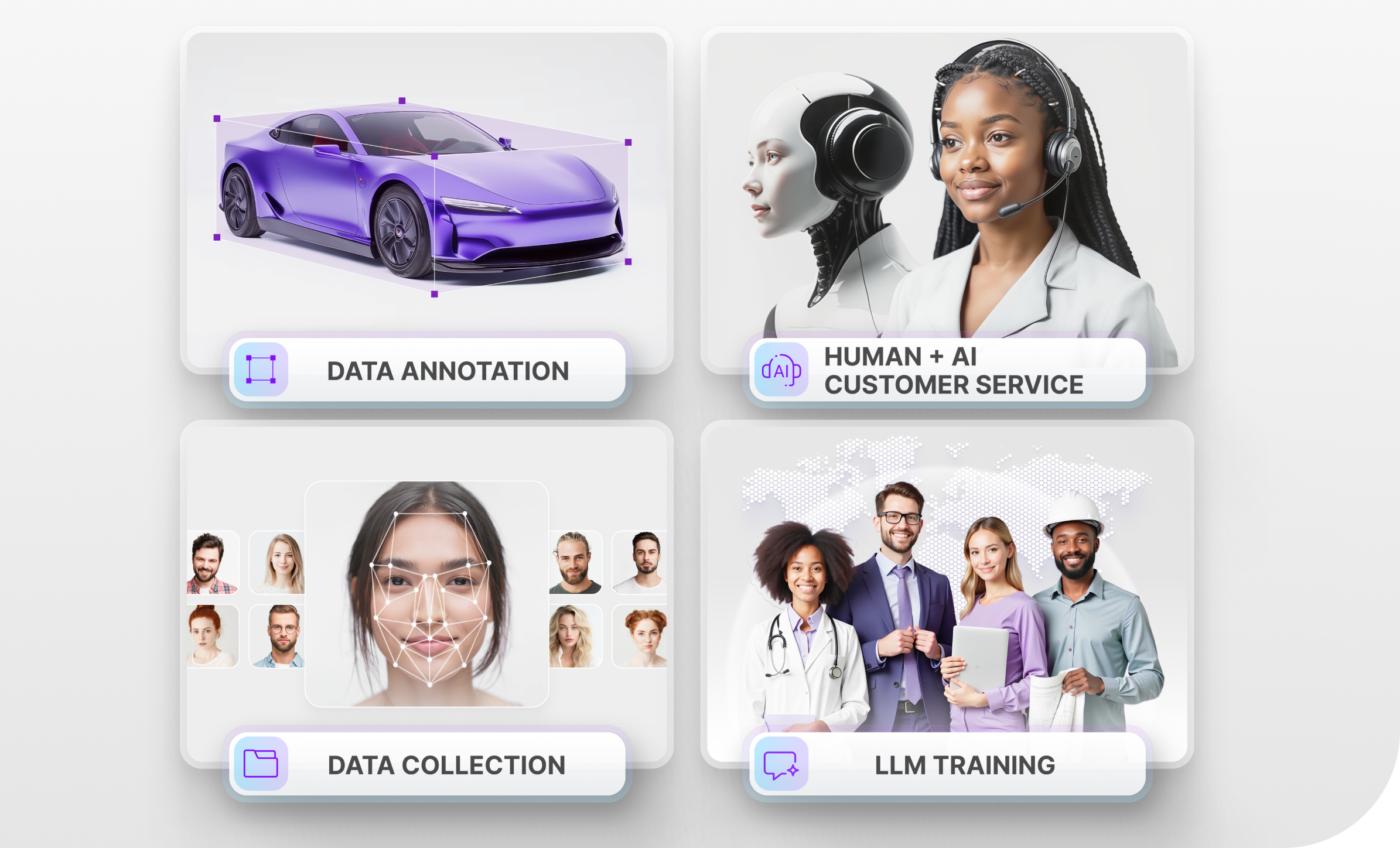How much does customer service impact the customer experience?
Published date: 03.12.2024
Read time: 8 min
Customer service is usually considered the front line of customer interactions in many businesses-as a basis of customer perception and interaction. In fact, its role goes way beyond complaints, questions, or problems you customers may experience. Great customer service will not only show customers that you are able to resolve issues promptly, but nudge them to keep coming back for more purchases. In today’s business landscape, when consumers have so many options on the market, customer service can very well be the deciding factor in the experience. In this article we will show you the multi-faceted relationship that exists between customer service and customer experience, how great service can lift a brand, while bad service can bring down the house. Knowing these facts, one can reveal some really effective ways to build stronger relationships with your customers.
Understanding the Importance of Customer Service
Customer service is the backbone in many business ventures that usually has a direct relationship with the satisfaction and loyalty of customers. It is the bridge between the company and customers, building perception after perception at every transaction. A strong framework in customer service means effectiveness in solving issues, attending inquiries in a very timely manner, and showing respectfulness to the customers. Great customer service builds emotional attachments, the likes of which solving problems alone cannot build, creating a mark that lingers on to further encourage sales and personal recommendations to friends and family. In today’s world, where customers have high expectations, keeping this information in mind will help keep your business on top of the competition in terms of winning and retaining customers and being deemed trustworthy and reliable.
Key Strategies to Improve Customer Experience Through Effective Service
While improving the customer experience may seem like a daunting task, you can be well on your way to success by implementing the following strategies:
- Prioritize Employee Training – Empower a professional and empathetic response by your customer service team with any situation that may arise, equipping them with knowledge and skill. On-the-job training keeps them interested and informed about the company’s product offerings, policies, and ways of communication.
- Leverage Technology – Agents can manage service automation and personalization with the help of CRM and AI chatbots. These tools can also be used for tracking consumer interactions, predicting customer needs, and providing persistence in support across all channels.
- Adopt a Customer-Centric Approach – Put the customer’s needs and expectations at the center of your service strategy. This means you need to actively seek out, obtain, and act on feedback to understand customer pain points and enhance your service delivery accordingly.
- Offer Multichannel Support – Your customers want to be met where they are, which means that you need to offer effective multichannel support over voice, email, live chat, and social media, across all of those touchpoints.
- Set Clear Communication Standards – Establish norms for response times, tone, and processes for resolving issues. Timely, transparent, and polite communication reassures them and helps build trust.

Comprehensive Training and Empowerment of Customer Support Teams
Comprehensive training and empowerment of customer support teams are pivotal in delivering outstanding customer experiences. Well-trained employees not only understand the company’s products and services thoroughly but also possess the communication and problem-solving skills required to address customer concerns effectively. Training should cover technical knowledge, interpersonal skills, and adaptability to handle diverse scenarios with confidence and empathy. Beyond training, empowering support teams by granting them decision-making authority fosters a sense of ownership and enables them to resolve issues promptly without excessive bureaucracy. This combination of expertise and autonomy enhances efficiency, boosts employee morale, and leaves customers feeling valued and respected, ultimately strengthening their trust in the brand.
Mindy Support: A Case Study in Exceptional Customer Service
An interesting example of the quality of customer service Mindy Support is able to provide is a case study for a customer operating a health and fitness app in the United Kingdom. For the past six years, we’ve managed customer support for this client, addressing inquiries via email for two products with a daily average of 300 tickets, which increases during peak seasons. Our agents handle a range of issues, including password recovery, functionality questions, subscriptions, step count accuracy, and coin-based transactions. Recently, we implemented an AI chatbot to handle routine queries, enabling agents to focus on ensuring seamless service. Additionally, our team actively manages seasonal workload variations and oversees brand reputation, maintaining a positive presence on the App Store and Google Reviews. You can learn more about our work for the client by reading our case study.
Measuring the Impact of Customer Service on Overall Experience
It is important to measure the impact of customer service to the overall customer experience, so that we can understand how well it is working and figure out where we can change. Customer service is measured by the use of common key performance indicators (KPI), such as the customer satisfaction scores (CSAT), net promoter scores (NPS), as well as first response times, which all provide insights into the degree to which the customer in question has received what they believed they would. Survey feedback, reviews, support interactions, all provide lots of signals to help analyze the pain points and the emotional tone of the customer interactions. Moreover, metrics of customer retention rate and repeat purchase behavior show how long term the impact of service quality on brand loyalty. With these measurements in hand, businesses can use them to quantify the impact of customer service in creating perceptions and refine their approach, as well as improve the overall experience delivered by the business.
Conclusion: Becoming a Truly Customer-Centric Brand
A true customer centric brand demands an extensive dedication to the understanding and prioritizing of customers’ needs, expectations and preference at every touchpoint. This helps in creating trust, satisfaction and loyalty among the customers and that’s the reason why exceptional customer service is at the top of this approach. What this amounts to is by investing in skilled and empowered support teams, the use of technology to enable personal interaction and then continuously measuring and improving service quality, businesses can create memorable connections with their customers. A customer centric brand meets and extends needs, looking for every possible opportunity to delight and develop long lasting relationship. Finally, this focus guides sustainable growth and elevates the brand in the field of trust as a leading brand in its industry.





